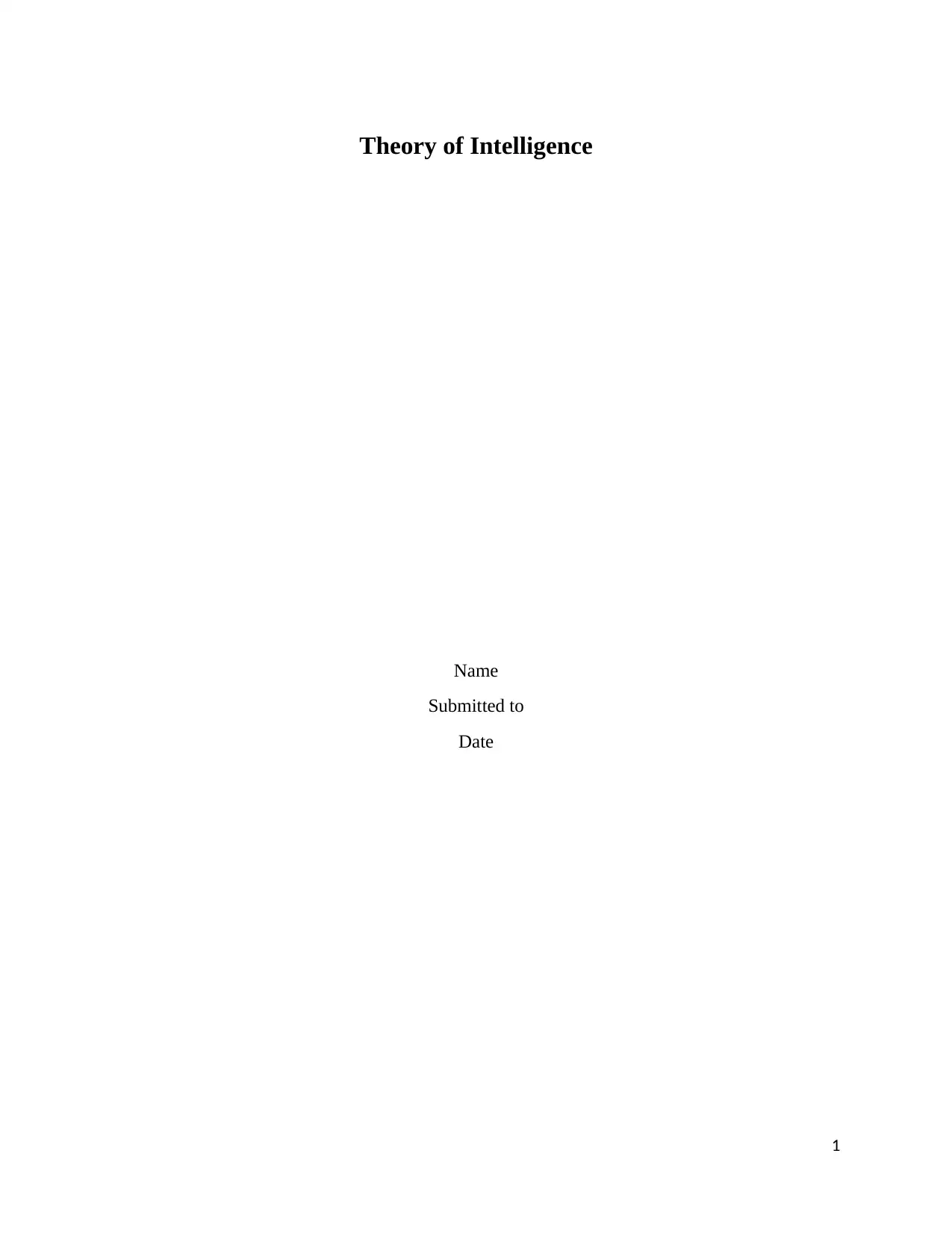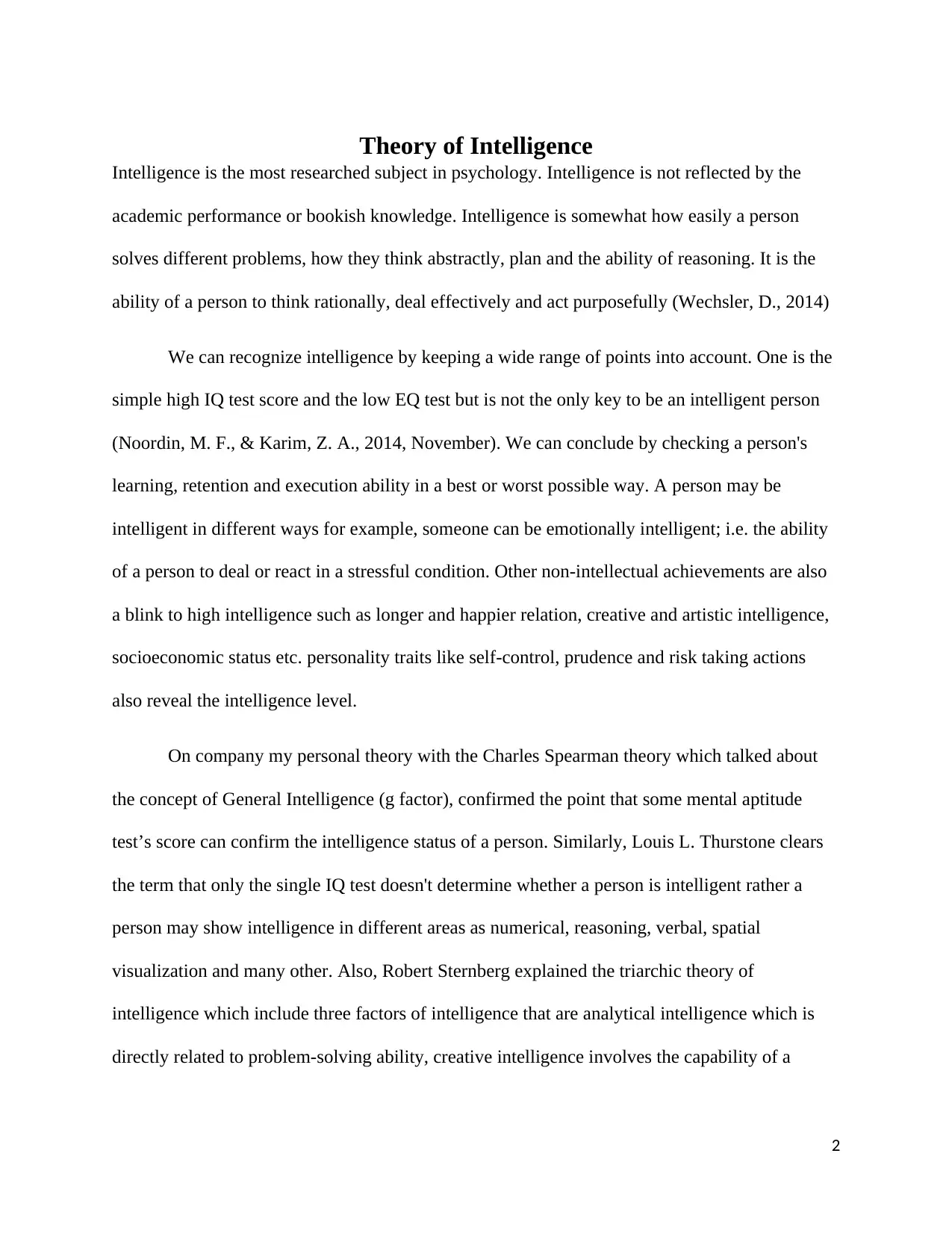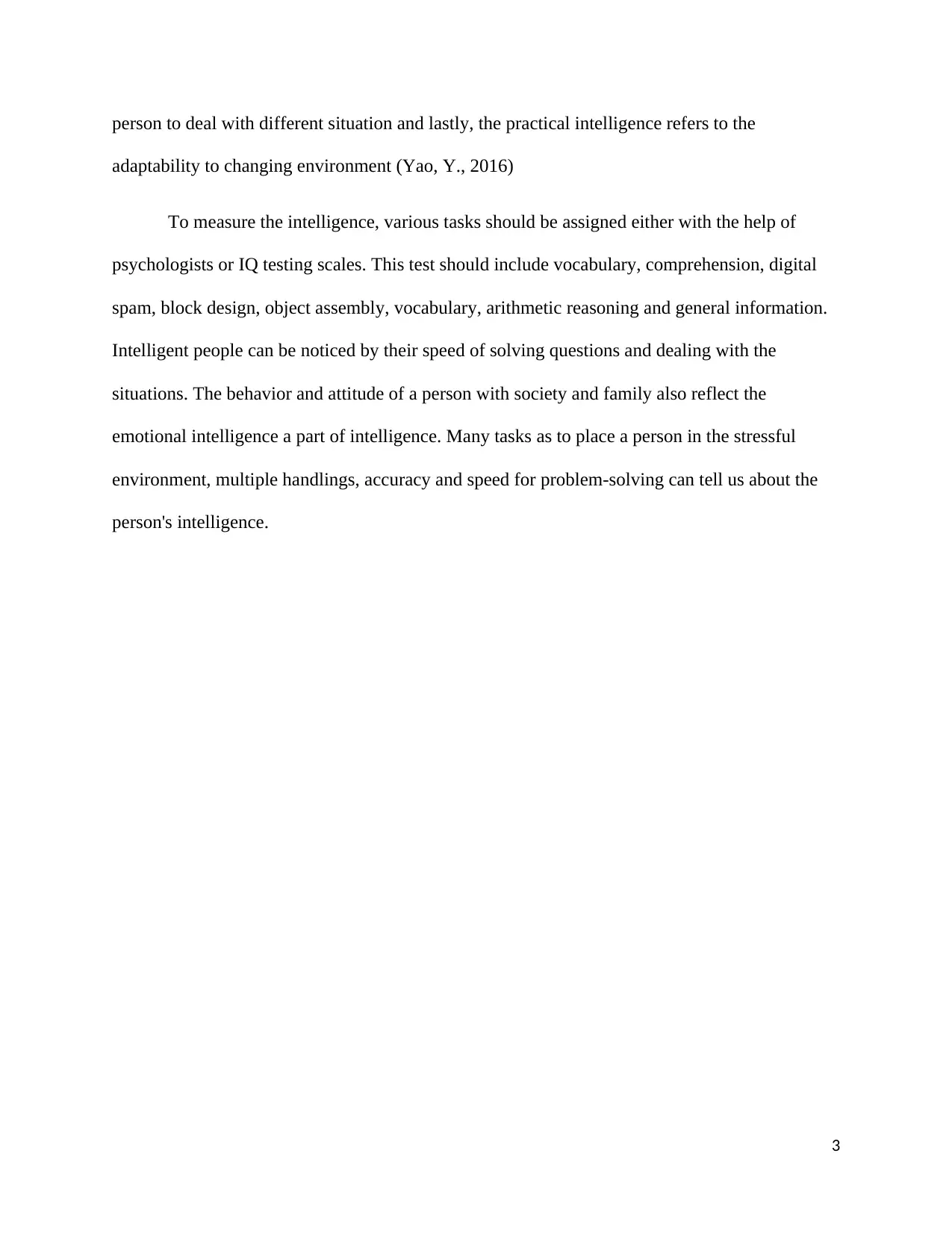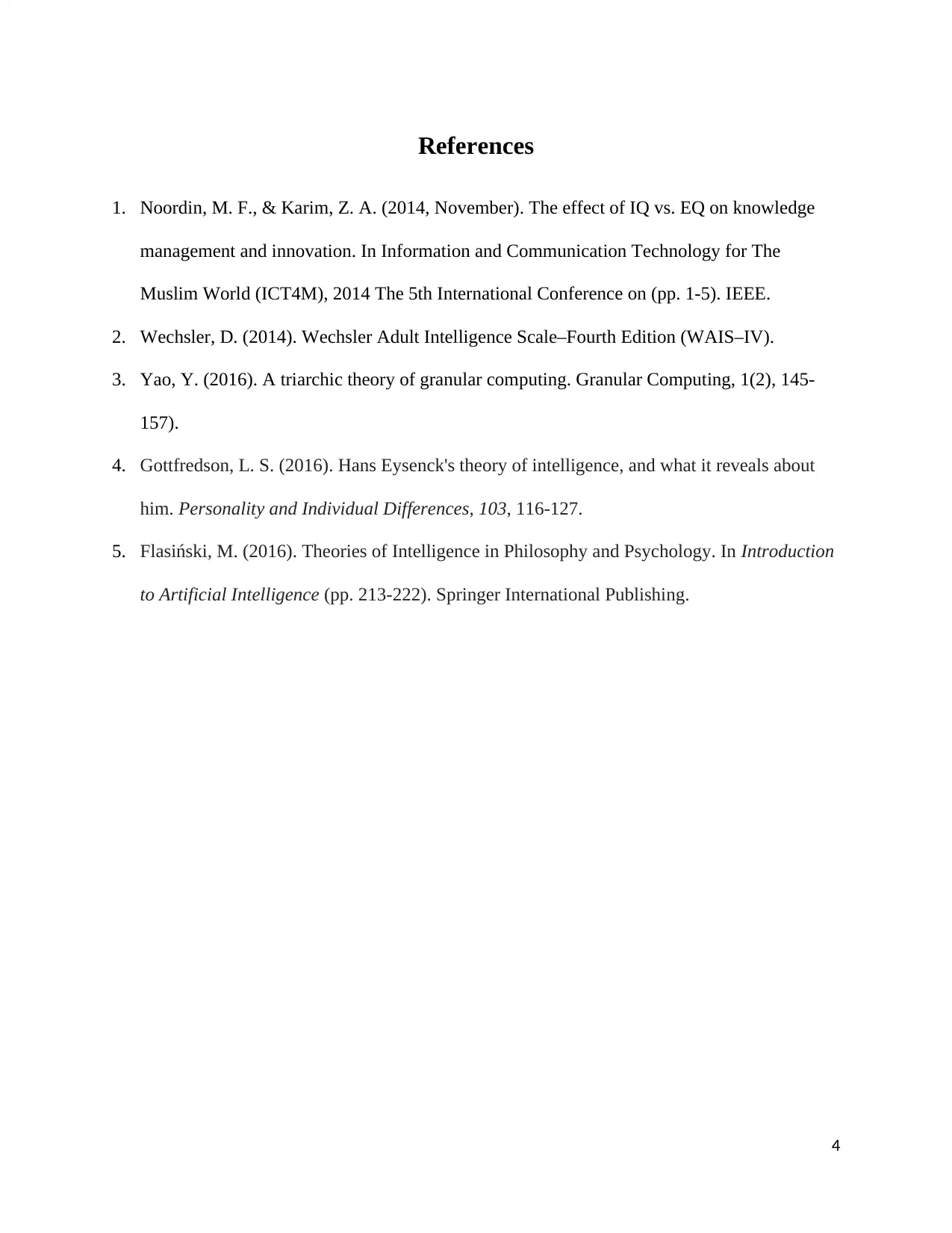Theory of Intelligence Essay
VerifiedAdded on 2019/09/20
|4
|653
|415
Essay
AI Summary
This essay delves into the multifaceted concept of intelligence, examining prominent theories within psychology. It begins by defining intelligence beyond academic achievement, emphasizing problem-solving skills, abstract thinking, and reasoning abilities. The essay then critiques the limitations of relying solely on IQ scores, highlighting the importance of emotional intelligence (EQ) and other non-intellectual factors in determining overall intelligence. Key theories are discussed, including Charles Spearman's general intelligence (g factor), Louis L. Thurstone's primary mental abilities, and Robert Sternberg's triarchic theory of intelligence (analytical, creative, and practical). The essay concludes by outlining methods for assessing intelligence, emphasizing the need for comprehensive evaluations that consider various cognitive and emotional aspects, including problem-solving speed, adaptability, and social behavior.
1 out of 4





![[object Object]](/_next/static/media/star-bottom.7253800d.svg)